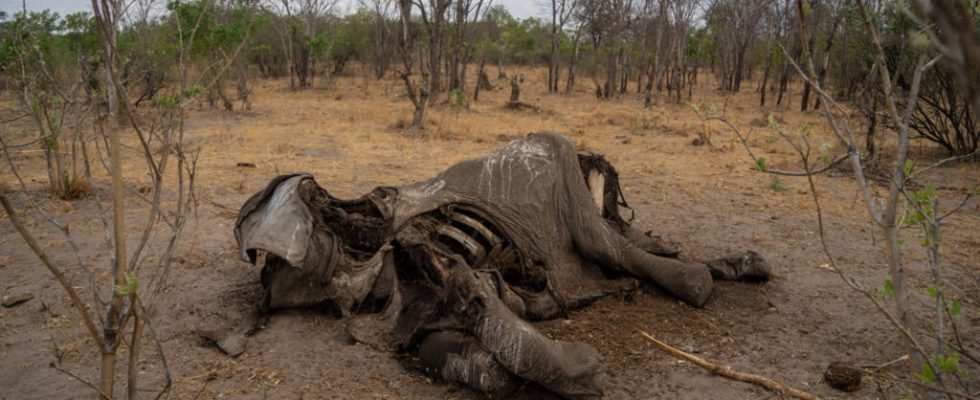In Zimbabwe, prolonged drought is killing elephants in Hwange National Park – the country’s largest natural park, home to 45,000. At least 100 elephants have died of exhaustion due to dwindling water and food. However, there are solutions to this increasingly recurring problem.
2 mins
Zimbabwe has the second largest elephant population in the world. Protected from poaching, it is nevertheless threatened with exhaustion this year in Hwange National Park, because the dry season does not end, with the return of the climatic phenomenon, El Niño.
“ At the end of the dry season, elephants are still weakened. During the dry season, elephants always stay around water points, they feed on the surrounding vegetation and therefore the longer the dry season lasts, the further they have to move away from the water points to eat and return to drink. So if the dry season continues, the distances to travel become too great and the elephants weaken and some end up dying. », Explains David Germain-Robin, of the International Fund for Animal Welfare (IFAW).
Try to simplify their travel
The solution exists, according to David Germain-Robin: facilitate, more than today, cross-border seasonal migration elephants : “ This is the principle of the initiative that we have at IFAW, we give space to create migration corridors between different areas. This has already been accomplished but afterwards, there are always hunting zones between the different zones, community zones, we must succeed in recreating zones conducive to the migration of elephants, by limiting conflicts with men. “, he specifies.
Saving elephants means limiting the global warming to which they are victims, underlines the specialist, since pachyderms promote reforestation by dispersing seeds. Southern Africa is the region that has been most successful in conserving its elephants, still victims of human activities and poaching, in West and Central Africa.
Interpol announces that it has seized 300 kilos of ivory in October, during an international raid organized jointly with the World Customs Organization, which led to the arrest of 500 people and the confiscation of 2,000 animal and plant products. protected.
Read alsoArgentina: the sudden death of more than a hundred sea lions worries NGOs and authorities
